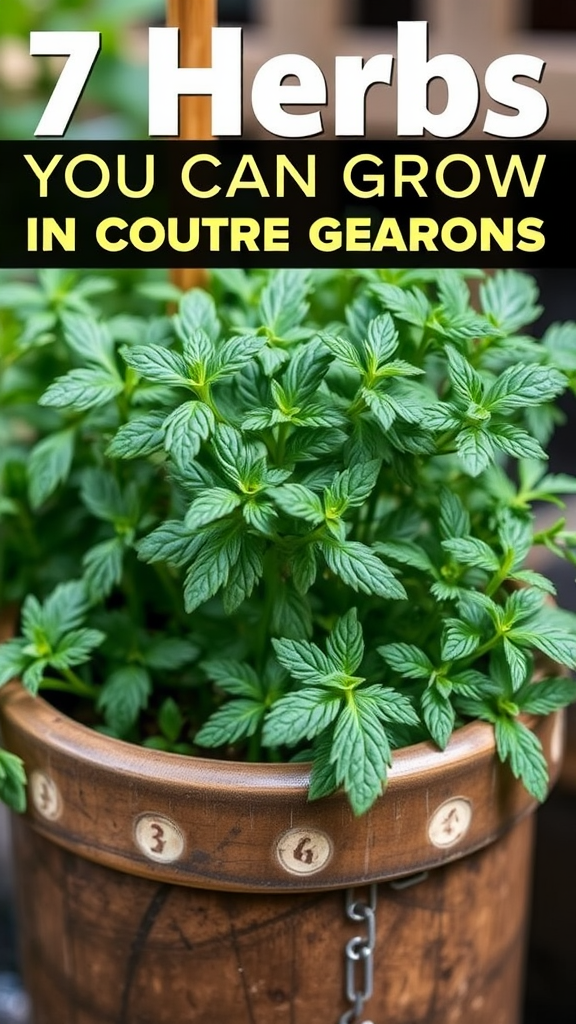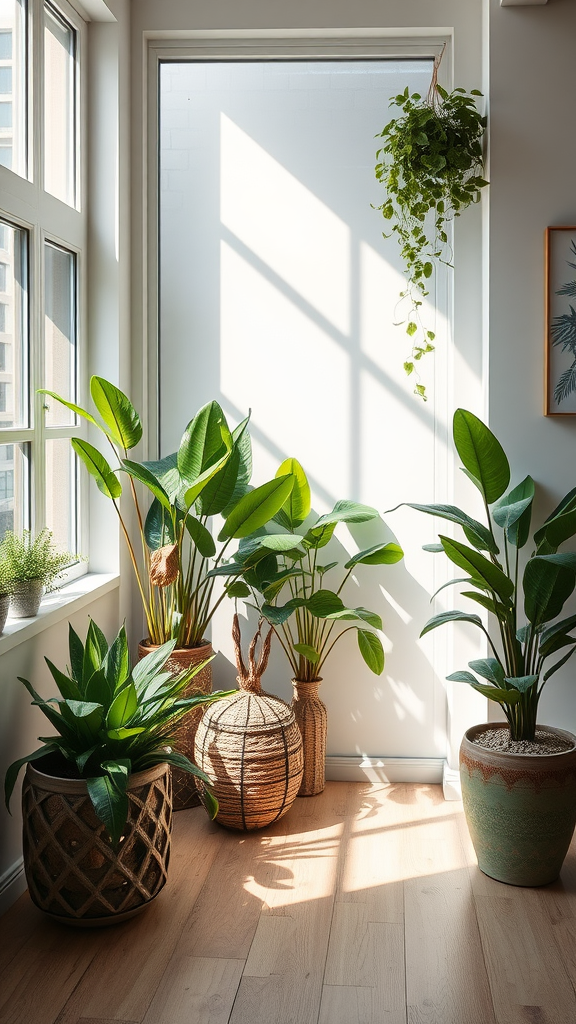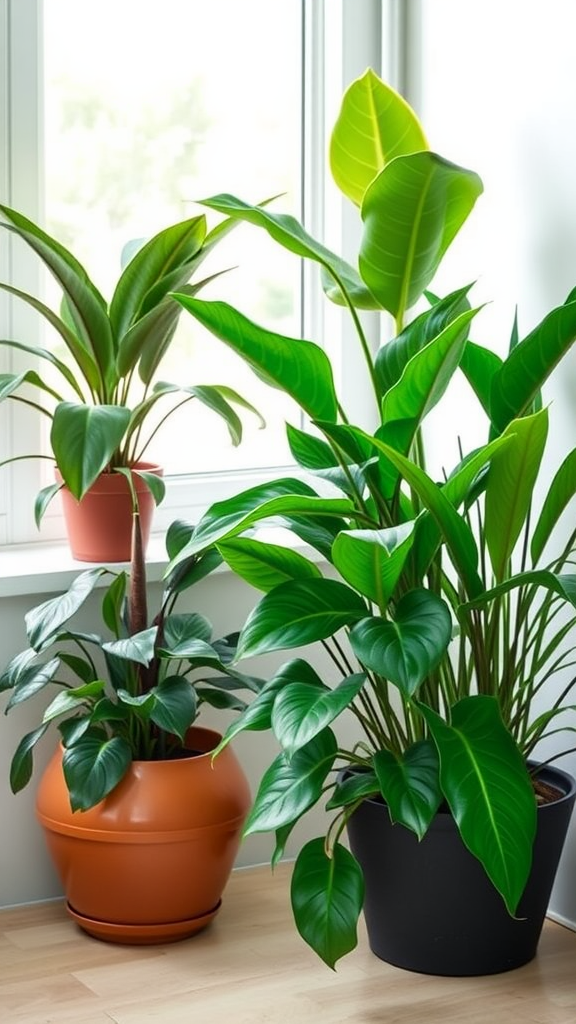Discovering 7 Herbs You Can Grow in Your Kitchen Garden
Creating your own kitchen garden can be a rewarding experience, and growing herbs is a fantastic way to start. Herbs not only add flavor to your dishes but also offer numerous health benefits. Whether you have a small windowsill or a backyard, you can grow herbs easily. Here are seven herbs you can grow in your kitchen garden.
Basil
Basil is a favorite among many home cooks for its sweet and peppery flavor. It’s perfect for pasta dishes, salads, and sauces. To grow basil, you need plenty of sunlight, so choose a spot that receives at least six hours of direct sunlight daily. Water the plant regularly, but be careful not to overwater, as this can cause root rot.
Parsley
Parsley is not only a beautiful garnish but also a versatile herb that works well in a variety of recipes. It’s rich in vitamins and can be grown in both sunny and partially shady areas. When planting parsley, use well-draining soil and keep the soil moist. The leaves can be picked regularly, encouraging more growth.
Cilantro
Cilantro offers a fresh, citrusy flavor that brightens up many dishes, especially in Mexican and Asian cuisine. This herb grows best in cooler temperatures, so plant it in early spring or fall. It prefers full sun, but in extremely hot weather, some shade during the hottest part of the day can help it thrive. Harvest the leaves regularly to encourage new growth, but remember that cilantro goes to seed quickly.
Thyme
Thyme is an easy-to-grow herb that adds a rich flavor to meats, soups, and stews. This low-growing herb thrives in dry, well-drained soil and needs full sunlight. It can tolerate drought, making it a great choice for those who may forget to water regularly. You can harvest thyme leaves at any time, but for the best flavor, pick them just before the plant blooms.
Mint
Mint is a fragrant herb known for its refreshing taste. This herb can quickly take over your garden, so it’s best to plant it in a pot. Mint prefers a slightly shady location and moist soil. You can use fresh mint in teas, desserts, and savory dishes. Regularly trimming the plant will help keep it bushy and healthy.
Oregano
Oregano is a staple in Mediterranean cuisine and is known for its robust flavor. This hardy herb loves full sun and well-drained soil. It’s drought-resistant and doesn’t require much water. To enjoy the best flavor, harvest oregano just before it flowers. This will encourage new growth and a more flavorful herb.
Chives
Chives are a member of the onion family and add a mild onion flavor to dishes. They are easy to grow and can thrive in containers or garden beds. Chives prefer full sun but can tolerate partial shade. They grow best in well-drained soil and can be harvested throughout the growing season. Regular trimming will promote bushier growth and more flavor.
Growing these herbs in your kitchen garden not only provides you with fresh ingredients but also enhances your culinary adventures. They can be snipped fresh whenever needed and will elevate the flavors of your meals. As you cultivate your herbs, don’t hesitate to experiment with new recipes or try combining several fresh herbs for unique flavors. Investing time in a kitchen garden can lead to a rewarding experience that connects you with the food you eat.
Whether you are a seasoned chef or a beginner in the kitchen, growing herbs is an enjoyable venture. Start with these seven herbs and enjoy the process of nurturing your plants. Over time, you can expand your garden with other herbs and plants that inspire your culinary creativity.
Tips for Caring for Your Kitchen Garden Herbs
Caring for your kitchen garden herbs can be a fulfilling and rewarding experience. Not only can you enhance your meals with fresh flavors, but you also enjoy the satisfaction of growing your own herbs. Here are some tips to help you cultivate a thriving herb garden right in your kitchen.
Choose the Right Herbs
Start by selecting the right herbs for your space and cooking style. Some popular choices that are easy to grow include:
- Basil
- Parsley
- Thyme
- Rosemary
- Cilantro
- Mint
- Chives
Consider your cooking habits and the flavor profiles you enjoy. Choose herbs that will not only thrive in your kitchen garden but also add freshness to your dishes.
Location Matters
Your kitchen herbs need the right amount of sunlight to flourish. Most herbs prefer at least 6 hours of sunlight a day. Place your herb pots on a windowsill, patio, or balcony where they can soak up the sun. If you don’t have sufficient natural light, consider using grow lights to ensure healthy growth.
Use Quality Soil
The foundation of any healthy plant is good soil. Use high-quality potting mix that drains well but retains sufficient moisture. You can also mix in compost to provide essential nutrients for your herbs. Avoid using garden soil as it may contain pests and diseases that can harm your plants.
Watering Techniques
Water your herbs carefully to avoid over-saturation. Here are some useful watering tips:
- Check the soil moisture: Stick your finger about an inch into the soil. If it feels dry, it’s time to water.
- Water deeply: Give your herbs a sufficient soak until water drains from the bottom of the pot.
- Avoid water on the leaves: Water at the base to avoid mildew and fungal diseases.
Fertilizing Your Herbs
While herbs can thrive on moderate nutrients, they still benefit from occasional feeding. Use a water-soluble fertilizer every 4-6 weeks during the growing season. Stick to a balanced, all-purpose fertilizer or one that’s specifically formulated for herbs. Over-fertilizing can diminish the flavor of your herbs, so less is often more.
Pruning and Harvesting
Regular pruning encourages healthy growth and increases your herb yield. Here’s how to do it effectively:
- Snip the top leaves: Use clean scissors to clip the top leaves, which promotes bushier growth.
- Harvest regularly: Regularly picking leaves is essential for the plant’s health. The more you harvest, the more your plant will grow.
- Avoid going overboard: Never remove more than a third of the plant at once to ensure it has enough foliage to thrive.
Pest Management
Keeping your kitchen herbs free from pests is crucial for their health. Check your plants regularly for signs of pests such as aphids or spider mites. Here are some natural remedies:
- Soap solution: A simple mix of water and mild soap can deter many pests.
- Neem oil: This natural pesticide is safe for most herbs and helps control pest populations.
- Companion planting: Consider adding flowers such as marigolds near your herbs to deter harmful insects.
Seasonal Care
Different seasons require different care strategies. In the winter, herbs may need protection from cold temperatures and frost. Be sure to bring pots inside or use protective covers if you live in a colder climate. In summer, ensure that your herbs are watered more frequently due to increased evaporation.
By using these practical tips for caring for your kitchen garden herbs, you’ll enjoy a vibrant and flavorful addition to your cooking. With the right approach, your herbs can thrive and provide fresh flavors all year long. Happy gardening!
Conclusion
Growing herbs in your kitchen garden is not just rewarding; it brings a touch of freshness to your cooking while also adding beauty to your space. By exploring the seven herbs mentioned in this article—basil, parsley, mint, rosemary, thyme, chives, and cilantro—you’ve learned how easy it is to cultivate these versatile plants at home. Each herb offers unique flavors and health benefits that can enhance your meals and overall well-being.
Taking care of your kitchen garden herbs doesn’t have to be complicated. With simple care tips such as ensuring they receive adequate sunlight, watering properly, and using well-drained soil, your herbs can thrive and yield a bountiful harvest. Remember to regularly check for pests and diseases, as early intervention can prevent larger problems down the road.
Trying your hand at herb gardening is an enjoyable journey. Each time you snip a sprig for your dinner, you’ll appreciate the effort you put into growing them. Moreover, having fresh herbs at your fingertips encourages you to experiment with new recipes, enriching your culinary experiences. So grab your pots, soil, and seeds, and start cultivating your green thumb today! Whether you’re a seasoned gardener or a complete novice, growing these herbs can transform your cooking and brighten your kitchen. Happy gardening!





